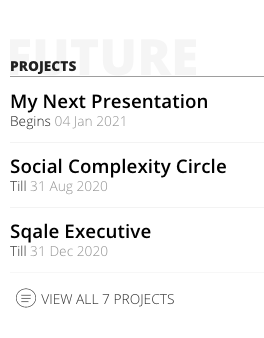Experiments With The App
We are about to enter a beta phase probably for three months. We’ll write a post for that next. Part of it will be to see if anyone comes up with new usecases. It is a new tool, and there’s a tendency to get it to do things that people are already doing, but more efficiently. However, it is a completely different tool and it allows people to get the job done in a completely different way. I’ll provide an example below, and I might add more.
Future Notes
I just finished doing a presentation for PhD. It didn’t go well. Or at least, I did ok but only afterwards realised I should have streamlined it right down to the core concepts. I tend to have this experience. I consider the complexity, and then try to represent it. Never works. It is because I am used to using the complexity of what is going on already in people’s heads. The idea of representing that complexity is absurd, but it is what some audiences want. They want to get bored, they want to check that you know your stuff, so you have to tell them stuff you and they know. Dull.
I need a way of parking this knowledge so that that the next time I embark on eg Presenting, this post-presentation learning and future-intention is clear. I know I could use notepads, but they are not time-orientated. They record when I write them. But generally it is a bunch of notes, some of which are categorised. I’ve books of those, gigabytes. There’s something about the lack of temporal references. I need something like Stack, where the next time I return to this task I know what to do.
We have a hack on Sqale which can enable this. Future Notes. In this case, ‘My Next Presentation’:

So, my first future note regards Future Presentations, and I set a start date say beginning of next year. I can check on my future notes any time by clicking on View Future Projects and see the list of notes there, one being Future Presentation. At the start of the year, it will popup in my mainlist (I don’t think it should be visible right now… this default needs to be addressed); I can then check it, review it, and throw it into the future again, where I can preview when the occasion calls for it, and again when that time pops up.
I’ve written up a description and a comment/vale. With nested projects (a serendipitous byproduct of naming a project as author), I might even be able to organise my future notes in time as well as by the standard category. Cool.
Potential Evolution of Idea…
For now the usecase is basic. It only works for me, which is fine. It would be useful to have the History function so that I can write notes as ‘values’ so I can create a stack of intentions for when I next do a presentation. The ‘Description’ becomes a summary which gets honed over the years. My method.
But what if I share the idea with others? I can’t just use the ‘Description’ part just for my notes. It would have to be a summary of everyone’s notes. If we share the same ‘My Next Presentation’, and people add their comments in their values, they can look at their own history of notes, and perhaps everyone elses (until we create privacy feature). The ‘Description’ would have to be agreed; we would need to have the Edit/Governance function done for that. But wouldn’t that be excellent? Not only your own personal list of hints, but a potential summary in the description.
This is just one example usecase. A strange mix of notes, calendar, sharing. When we start to organise ourselves temporally better, life will get easier for us. Less blocking off of calendars like time is a thing. And all supported by a nature temporally-orientated economic.
I’m looking forward to seeing how some young people use the tool in a way which is ‘natural’ to them because they have not bought into ‘calendars’ and ‘wages and salary’ and ‘position’. I look forward to helping them achieve the impossible.



